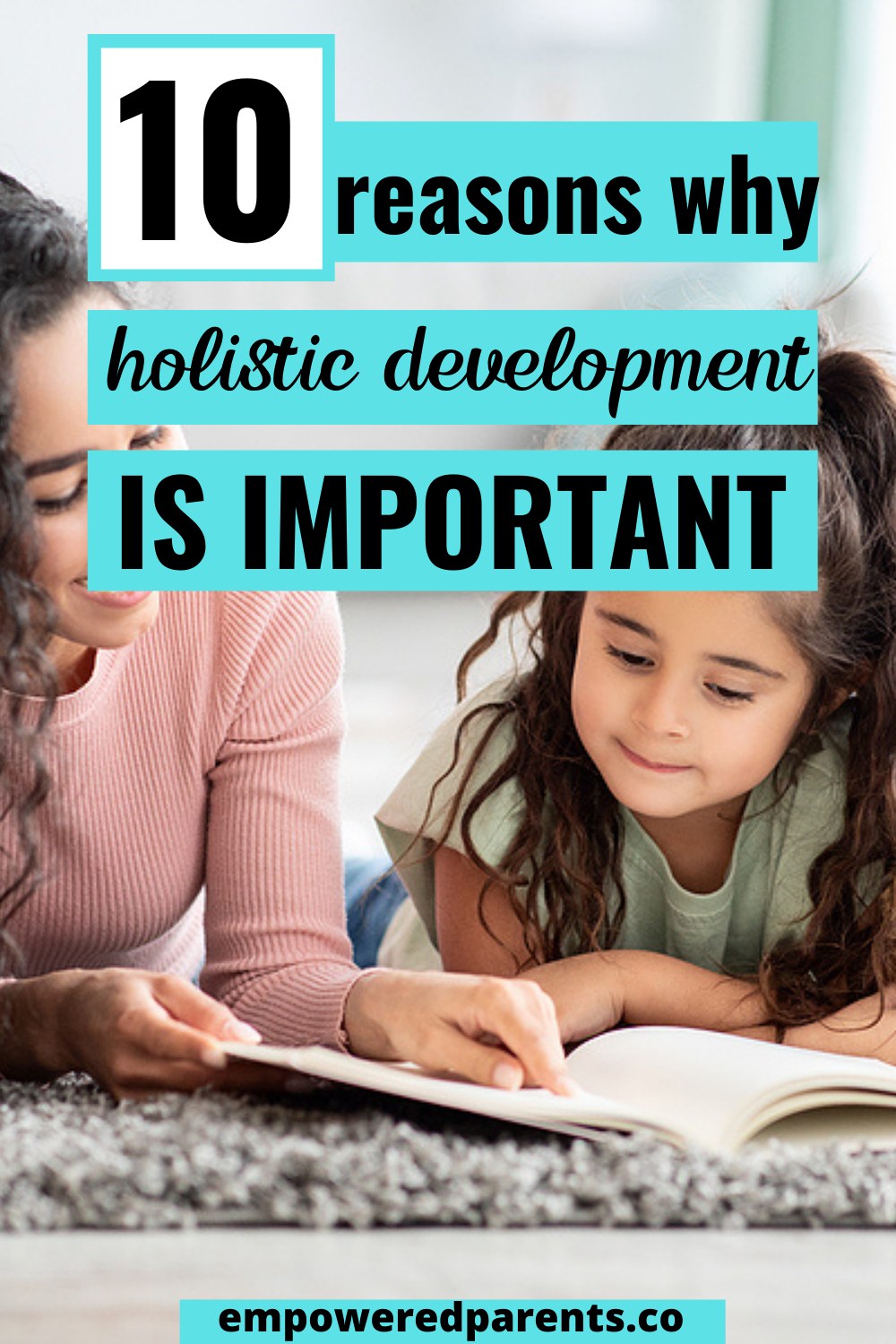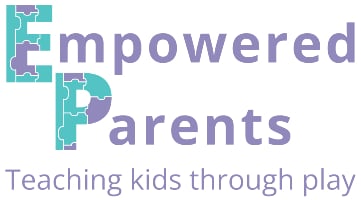During early childhood and even beyond, the best approach to education is a holistic one.
Here’s an overview explaining what holistic development is, what the 5 aspects that make it up are, and why holistic development is important.
What is Holistic Development?
Holistic development is about developing all aspects of a child. It takes into account the whole child and all 5 areas of development.
What are the Five Aspects of Holistic Development?
There are five aspects of holistic development. They are:
1. Physical Development
Physical development is about growing and developing the physical body.
It includes things like fine motor skills, gross motor skills and sensory development.
2. Intellectual Development
Intellectual or cognitive development involves the development of language, thinking skills and mental processes. It is how children acquire knowledge and learn concepts.
3. Social Development
The ability to communicate well with others, form healthy relationships and develop healthy social skills.

4. Emotional Development
Emotional development is about the child forming a healthy concept of self, learning to express feelings and regulate emotions, and developing independence.
5. Spiritual Development
Spiritual development involves developing an internal set of morals and values, as well as a personality and view of the self.
Why Is Holistic Development Important?
Why is holistic development so important? Here are just a few of the benefits of holistic development in the early years.
P.S. For easy play ideas that build multiple areas of development, try the Learning Through Play Activity Pack.
1. It Focuses on the Whole Child
Most importantly, holistic development means the whole child is developed.
Traditionally, the focus was on developing a child intellectually and schools seemed to focus heavily on grades above all else.
By using a holistic approach to education, you will be developing all areas of a child equally.
2. It’s Respectful
Teaching holistically is respectful to the child. It makes them feel competent and gives them a wide variety of experiences and learning opportunities. It also encourages individuality.
3. It’s the Natural Way of Development
Children’s skills do not develop in isolation. A baby does not develop all their physical skills separate from their mental skills and social-emotional skills.
Every aspect of their development is intertwined and fits together like a puzzle. All areas develop simultaneously.

Babies who have a lack of physical affection and bonding, for example, experience many developmental delays in their physical, intellectual and emotional skills.
4. It Helps Kids Reach Their Full Potential
When education focuses only on academic success and intellectual skills, many children do not reach their full potential.
Up to 12 types of intelligence have been identified, with skills that span across multiple aspects of development.
Why is a holistic approach important in childcare? It is imperative for exposing children to opportunities to find and develop their strengths to the best of their abilities, as well as strengthen their weaker skills.
5. All Learning is Interconnected
While you can study various aspects of development, they are all interconnected and learning is happening simultaneously.
Take the act of reading, for example. Reading involves having good visual perception, eye-tracking skills, phonological awareness, language skills, listening skills, attention span, comprehension and much more.

The development of pre-reading skills starts while young kids are playing in a tunnel and developing their spatial skills, singing along to nursery rhymes and playing games like Telephone.
No academic skill can be built without a child’s physical, social and emotional skills.
Often, when one skill is lacking or undeveloped, this can have an effect on another. Here are a couple of examples of the interrelationship of development:
- Children struggling with social skills may not be comfortable learning alongside other kids and may struggle to focus.
- Physical delays may impact a child’s intellectual development – such as a hearing difficulty impacting a child’s ability to participate in lessons.
6. Social-Emotional Skills Affect Learning
When children are happy and secure in themselves, they learn better. This comes from being allowed to develop emotionally, to learn to regulate one’s emotions and to express feelings in a healthy way.
Children who feel seen, who think they matter and who are validated are in a much better emotional state and are therefore receptive to learning.
Focusing on kids’ social-emotional development has been shown to optimize brain development, among other things.

7. Emotional Intelligence is Crucial
In 1995 Daniel Goleman published the book Emotional Intelligence: Why It Can Matter More Than IQ. There have since been many studies on developing emotional intelligence.
EQ – emotional quotient – is proving to be more relevant to overall success in the workplace than a person’s IQ (intelligence quotient).
8. Holistic Skills are Needed in the Workplace
In order to thrive in today’s fast-paced world of technology, people need multiple skills and the ability to think creatively.
They need people skills, resilience, creativity, emotional intelligence and the ability to solve problems.
More and more people are becoming entrepreneurs and creatives, which makes a holistic education crucial.

9. People Have Many Roles
Living a happy, thriving life is about a lot more than just work.
People must learn to integrate into their society, find meaning in their lives, be independent, develop a moral code, be at peace with themselves, etc.
They also need skills to enter into healthy relationships, take care of families and build the lives they envision for themselves.
There are so many aspects of a fulfilling life that they cannot all be mentioned in an article. The definition is also unique for every person.
10. Teaching Holistically is More Meaningful
When a parent, teacher or school follows a holistic approach to educating a child, teaching is usually more meaningful and allows for spontaneous learning opportunities.
A holistic approach should take the child’s whole life and environment into consideration. Being rigid can prevent natural learning sometimes.
Most holistic activities develop multiple aspects of a child and appeal to children’s differing learning styles. Here are 33 holistic development examples and activities.
These are just a few reasons why holistic education is important.

